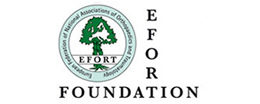EFORT calls upon the European Commission and European Parliament to ensure that implementation of the new Medical Devices Regulations (MDR) and In Vitro Diagnostic Medical Devices Regulations (IVDR) does not jeopardise the availability of high quality medical devices, which enable the safe treatment of patients and avoid compromised outcomes.
EFORT is the European Federation of National Associations of Orthopaedics and Traumatology, representing more than 45,000 orthopaedic and trauma surgeons who rely heavily on implantable medical devices to save lives, ease pain and restore mobility. Examples include fracture fixation devices and joint replacements.
EFORT believes that robust regulation to ensure a supply of safe devices and to monitor the introduction and use of devices in practice is essential. Our members are very pro-active in stimulating independent oversight of device performance, such as by the use of Joint Registries. Strengthening of the regulations to ensure patient safety is applauded.
The MDR and IVDR published in May 2017 permitted 3- and 5-year transition periods to allow new regulatory systems to be set up. During this time new Notified Bodies need to be designated, and established ones redesignated, 18 system-critical acts (as identified by the European Commission as mandatory) have to be published and interpreted and the appropriate infrastructure has to be established to allow the regulations to be implemented. This includes the establishment of expert panels and reference laboratories, the agreement of common specifications and the publication of standards and guidelines, which would allow uniformity in the interpretation and application of the regulations.
EFORT is concerned that if full achievement of the aims and objectives of this legislation is not achieved by the end of the transition period, which is rapidly approaching, not only will this impact on the introduction of improved devices, but also that the necessary review of all devices currently in use will not be complete. This could result in non-availability or even withdrawal of implants and devices currently in widespread use. Although the designation of a grace period was sensible, it should most appropriately have been commenced at the point at which all necessary infrastructure needed to enact the regulations was confirmed to be in place.
A re-evaluation of progress is needed. A logical process to ensure timely installation of key components is needed and, when data on progress is available, a process for introduction of the regulations is needed that does not compromise the care offered to European patients by members of the National Associations of Trauma and Orthopaedic Surgery, which make up EFORT.
For EFORT:
Ass. Prof. Dr. Per Kjaersgaard-Andersen – EFORT President 2018/2019
Mr. David Limb -EFORT Secretary General
- Full statement in PDF Version (PDF document – 2 pages – 390kb)


